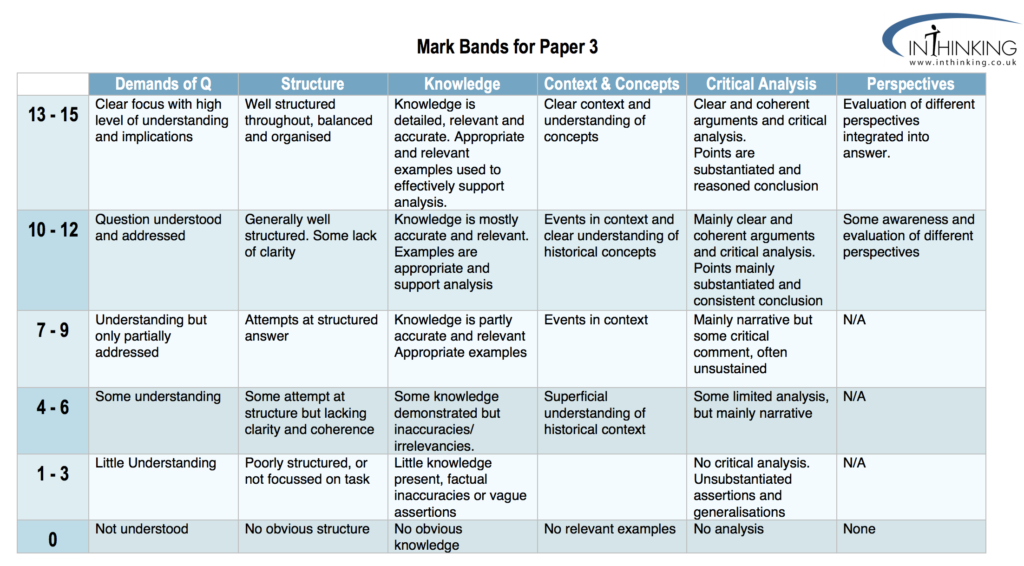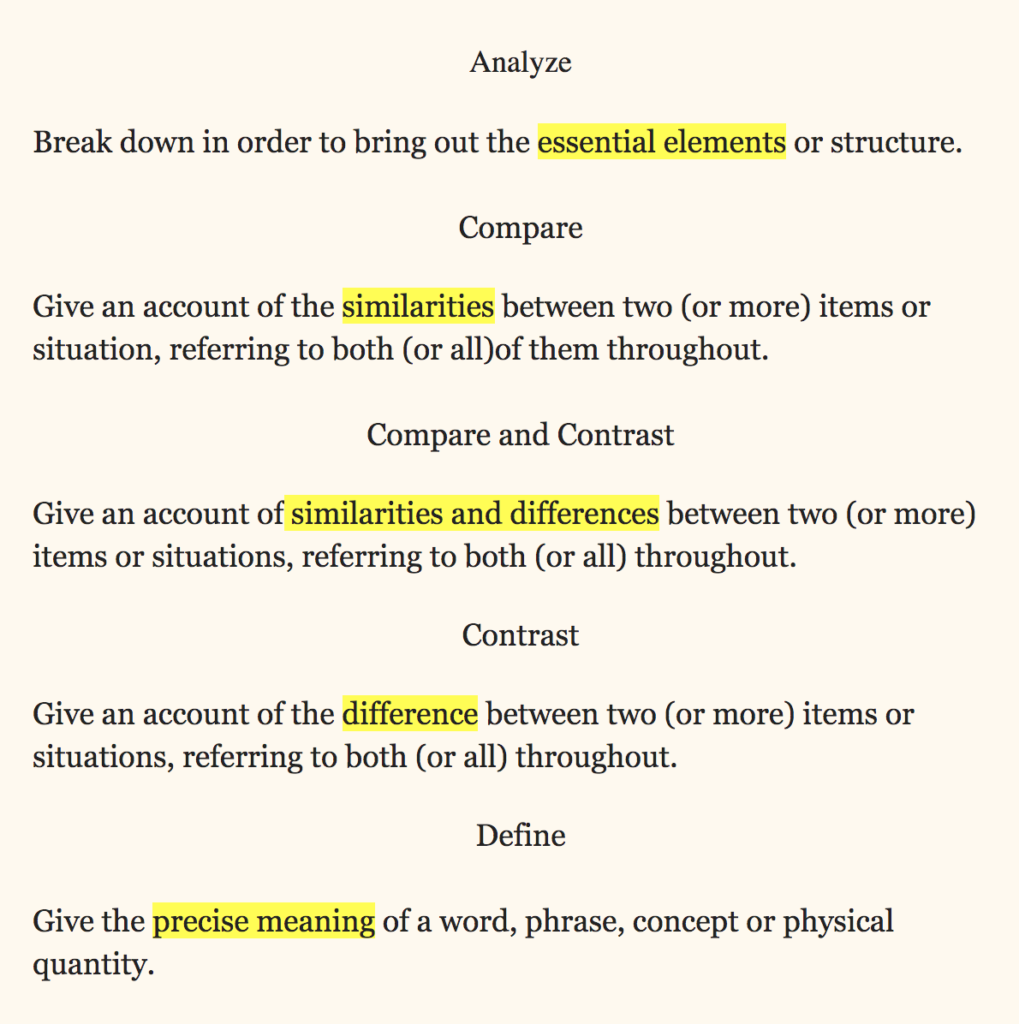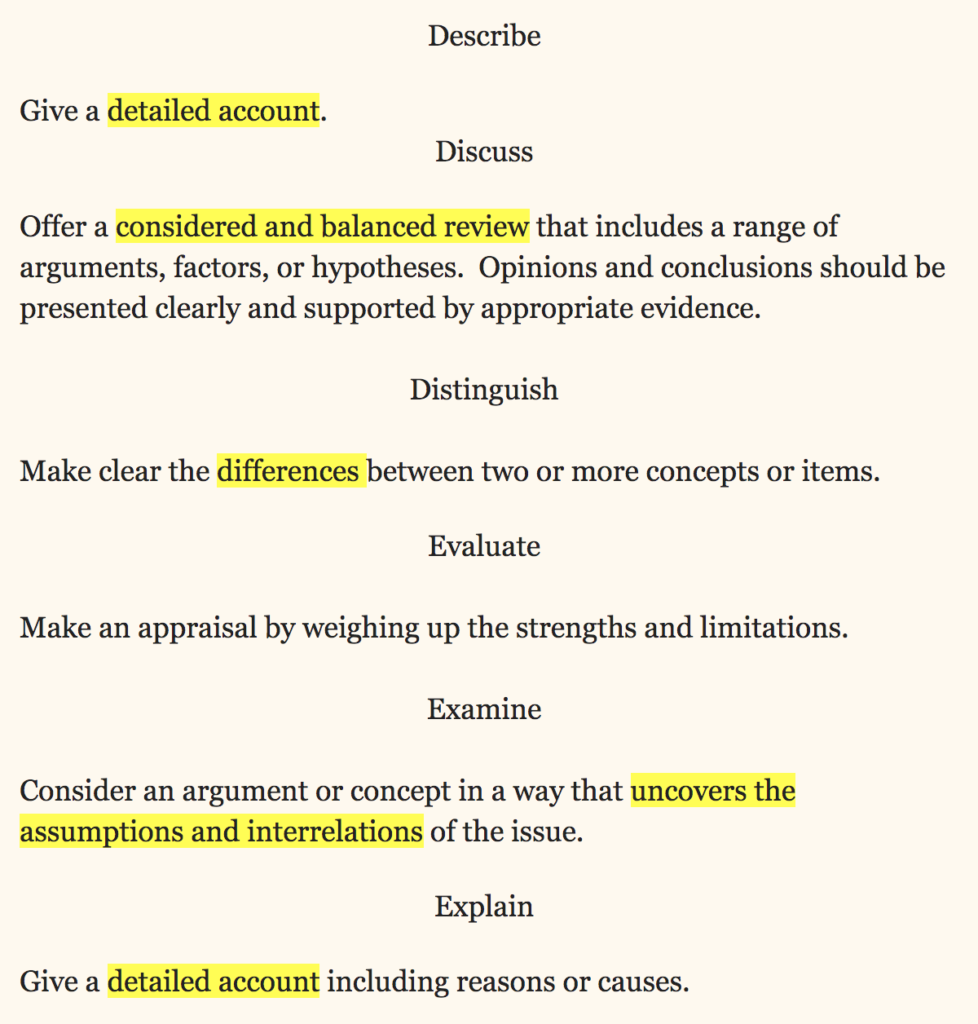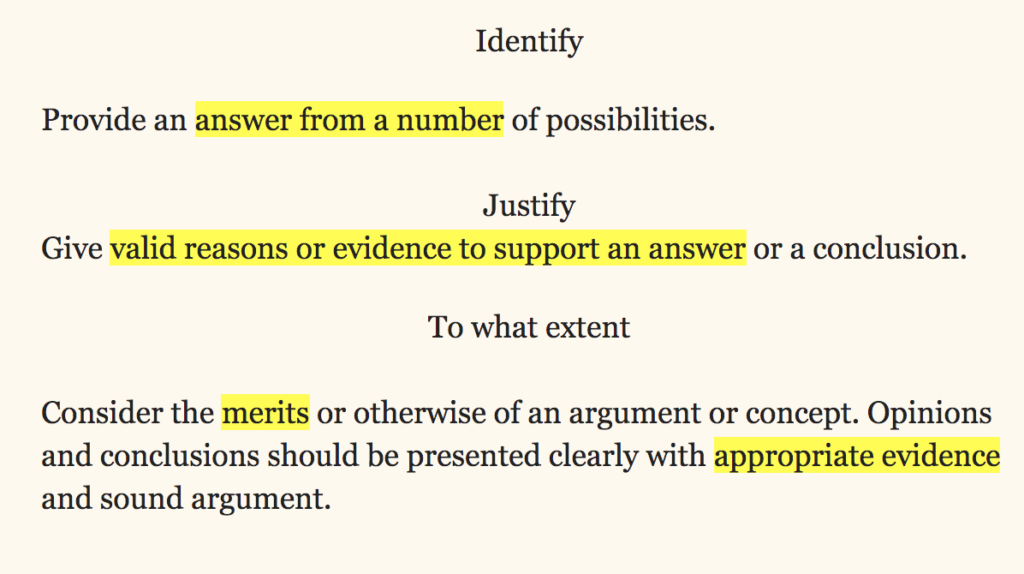Papers 2 and 3

- Make sure you select the questions from the topics you have studied.
- Choose the questions that you understand the most.
- For Paper 2, these must be from two different topics.
- For Paper 3, you can answer any three questions.
- Ensure you are aware of the demands of the command term.



Paper 2 generally requires you compare and contrast (although a range of command terms can be used) either wars or authoritarian leaders. The most effective strategy to develop your arguments is to identify Political, Economic, Social or Military comparisons. You could also incorporate long and short-term comparisons if the question demands these.
- Irrespective of the command term, focus most of your answer on the topic of the question.
- You only have 45 minutes for each essay so make sure you devise a plan for the first five. An unfinished essay can seriously affect your score.
- Develop a thesis statement in the introduction. What are you going to argue and why? Give the main reason and/or why there is a debate about the question.
- Create an argument that supports your thesis statement. Use the PEEL (Point, Explanation, supporting Evidence or Explanation, and Link to the question and/or thesis statement). If the question asks for comparisons, you should identify one and also link it to your thesis statement.
- Who or what would agree with this argument? The view of a historian would be great to read but if you cannot remember or do not have one, include a social group, nationality or person instead. Including these perspectives will allow you to move beyond 9/15 to the higher bands.
- Include a final sentence which links to the next paragraph.
- Your third paragraph can be a further argument supporting the thesis statement. Use the same advice as above.
- The fourth paragraph should usually offer balance to the argument. What evidence is there which counters your thesis statement and who opposes it?
- The last paragraph is your conclusion. This is not a summary of what you have written. Try to link your evidence together and then show how this proves your thesis.
- You can end with a philosophical statement if you wish, explaining why the debate is ongoing or the obstacles to the historian.
